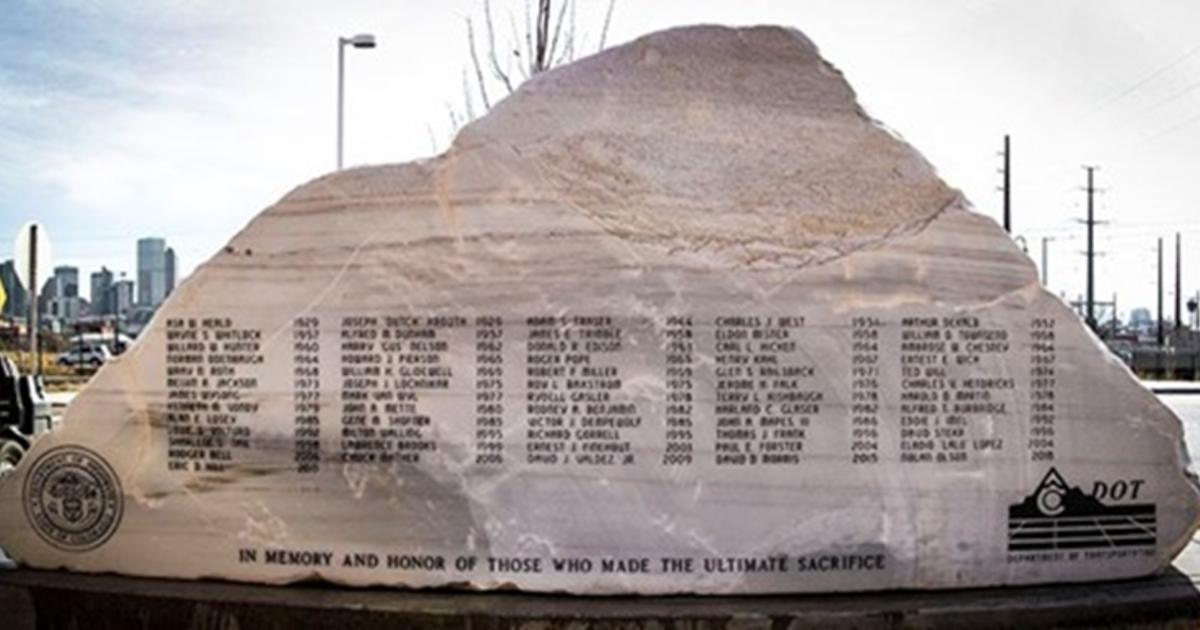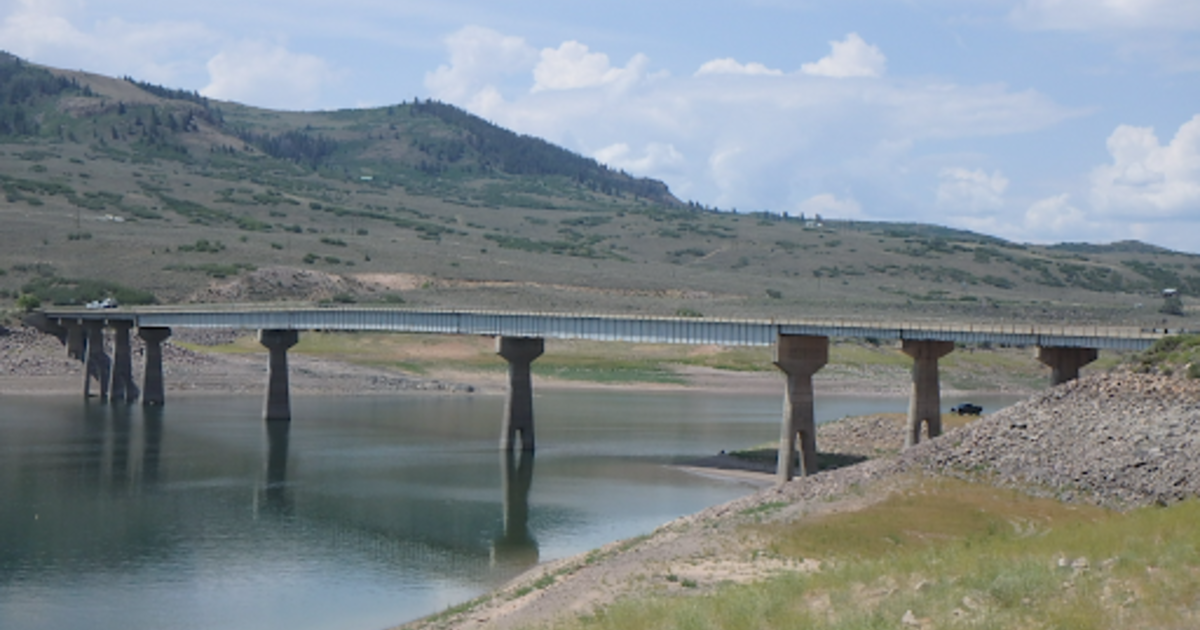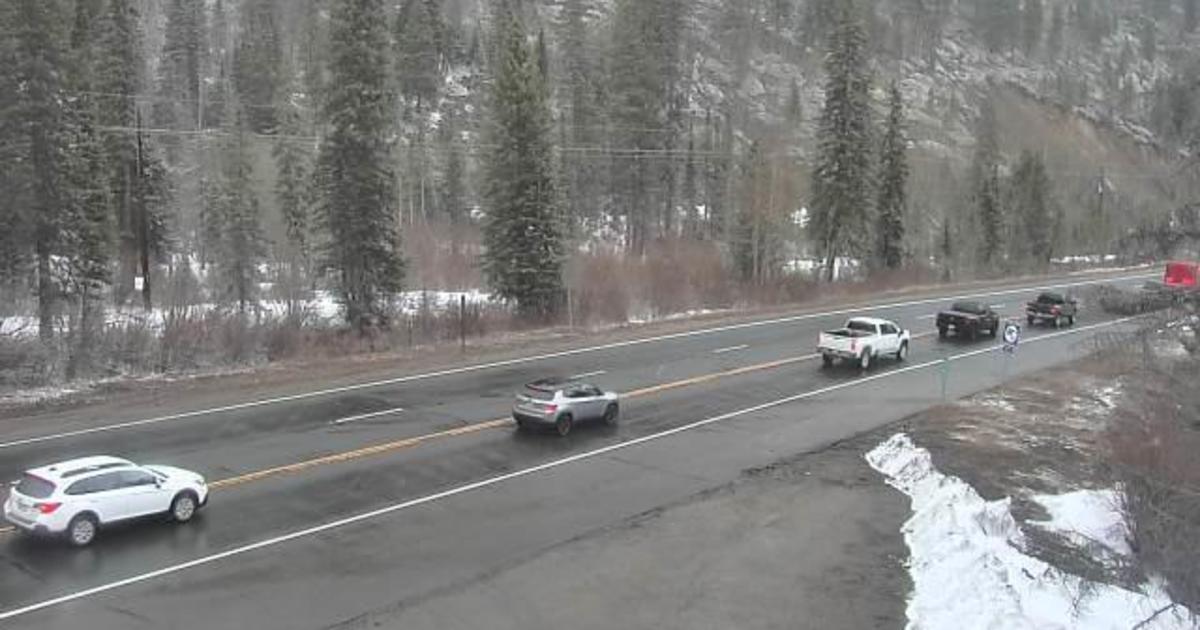CDOT, State Patrol Unveil Plans For I-70's Mountain Woes
GOLDEN, Colo. (CBS4) - The Colorado Department of Transportation has significantly increased spending and created new programs to battle Sunday afternoon traffic headaches on Interstate 70 during the winter.
CDOT invested more than $8 million in operational costs for the interstate this season, operations director Ryan Rice said Thursday. That's a significant increase from the $2.5 million tab in 2013, although it's still a small percentage of CDOT's total budget.
"We are throwing a lot at this corridor," CDOT spokeswoman Amy Ford said.
Part of CDOT's plan is an intensive effort to keep bald -- and thus dangerous -- tires off the road.
This season, the transit authority will partner with the Colorado State Patrol and tire companies to offer discounts on winter tires -- likely around 10 to 15 percent, Ford said -- to motorists who are driving around on bald rubber. They'll even patrol ski resort parking lots to perform tire checks and leave fliers on cars with balding tires to spur owners to replace them.
That should limit accidents, the state patrol said. Poorly maintained cars, especially those with tires without treads, are one of the leading causes of accidents.
CDOT and the state patrol on Thursday unveiled that plan as part of a broader strategy to keep the heavily-traveled route, which stretches from Vail to Denver, safer and less congested. Alongside the please-replace-your-balding-tires initiative that will likely start after Thanksgiving, CDOT is encouraging weekend skiers and snowboards to rethink when they head to the hills and return home to help quell traffic congestion.
"No one expects a delay-free drive on the I-70 mountain corridor, but they expect some level of reliability. All of the efforts that we're putting into play are trying to create more reliability in that delay," Ford said.
The average drive from Denver to the Eisenhower Tunnel during normal traffic is 50 minutes, but the average time can jump to two hours during bad weather, peak periods or accidents. In 2013, nearly 11 million vehicles moved through the Eisenhower Tunnel.
Also key to CDOT's plan is the Change Your Peak Time campaign, which encourages drivers to consider when they head west on Fridays and return home on Sundays. The state is hoping drivers will avoid the 1 p.m. to 5 p.m. peak traffic hours eastbound on Sunday afternoon.
Rice called the pile of programs "low-cost, high-benefit solutions." Among them:
- To help lessen the load, CDOT will subsidize gasoline costs for motorists who carpool, as a part of a new initiative with the Denver Regional Council of Governments. CDOT said it's not sure yet how much of a driver's gas bill they'll pay.
"We want to have a way to facilitate people to hook up with others who have a common interest in going to the mountains to enjoy themselves," Ford said.
- The transit authority has hired a mountain corridor operations manager who will oversee planning and traffic management for the stretch of I-70.
But the balding tire problem is central to the strategy.
CDOT said that on one day last winter, it assisted 22 vehicles that spun out, blocked traffic or caused an accident. All but three had unsafe tires.
Fines for driving with bald tires can range from $133 to $657, the state patrol said. For commercial vehicles, not following chain laws can land fines from $579 to $1,157. On the weekend of Oct. 18-19, the state patrol issued more than 150 tickets for chain law violations, and it's stepping up enforcement this year.
The state patrol is also considering enacting chain laws for passenger vehicles closer to the metro area, something that's common in southwest Colorado.
Major Steve Garcia with the state patrol said 60 percent of all traffic delays are because of accidents, and while a minor accident takes just 10 minutes to clear up, it can delay traffic up to one hour.
"You've seen that residual effect when you've been driving down the road and you see what we call an accordion effect, when you get up to where people are slowing down and there's nothing there," Garcia said.
CDOT and the state patrol are also revamping past successful programs:
- They will expand the use of metered lights that transition quickly from red to green to create gaps in traffic and prevent backups. Ramp metering will happen at exits in Silverthorne, Frisco and Copper Mountain.
- The state patrol will continue to educate motorists about Colorado's "Move It" law that requires drivers involved in accidents without injury or alcohol and drug use to move their cars from lanes.
- The state will again partner with businesses near ski resorts to offer early-bird or stay-over specials that will prompt travelers to arrive early or leave late.
- Snowplows and state troopers will escort groups of cars up the steep grade from Silverthorne to the Eisenhower Tunnel and at other locations to thin traffic density.
"It was highly effective last year," Rice said.
Using that tactic, peak-hour traffic delays on days with bad weather were reduced by one hour and 17 minutes, he said.
- Written by Tim Skillern for CBSDenver.com
Check the status of trails & lifts at Colorado ski resorts in the CBSDenver.com Ski Report section.



